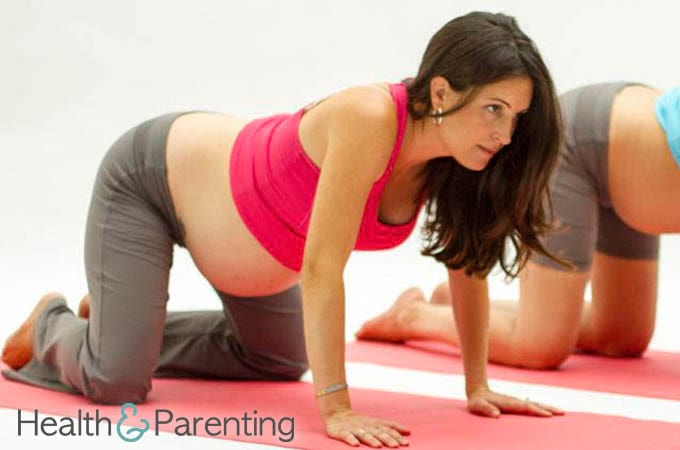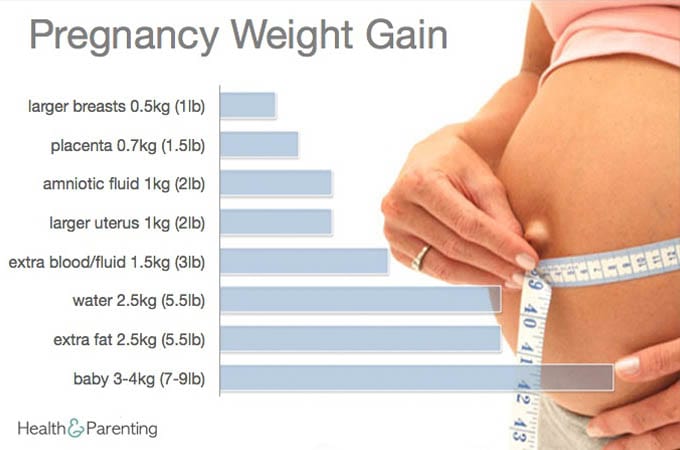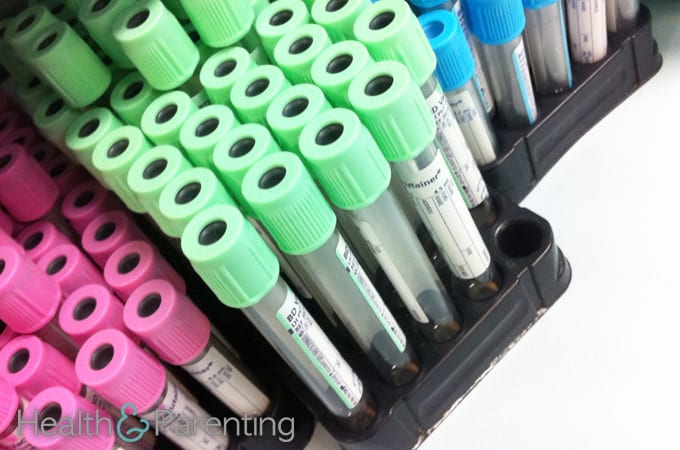Most things you read will tell you to avoid any abdominal exercises during pregnancy. For obvious reasons, of course. Especially in late pregnancy, it is important to not over strain your abdominal muscles. And if you have a high risk pregnancy, then doctors will likely limit exercise completely.
That being said, there are benefits of ab exercise during pregnancy. The most important thing to remember is that ANY AND ALL abdominal exercise that require you to lie on your back are to be avoided. Lying on your back reduces blood flow to you and the baby. However, there are some exercises that can help in other positions.
One of the most comfortable ways to keep your abdominal muscles strong (which will help during labor and deliver and recovery) is to get on all fours, keeping your back straight. This position is also comfortable to relieve back pain. Once in this position, gently pull the muscles of your abdomen in and out, breathing along with the exercise. It sounds easy and simple, and it is – but it is also effective.
If your balance is good, you can also do what is referred to as the superman pose. The superman pose is also on all fours, except for you lift your opposite arm and leg in the arm simultaneously and hold for a count of 5 seconds before releasing. Again, make sure that your back is flat, and that you aren’t arching your back in any way.
If you aren’t comfortable in any of these positions, you can do simple abdominal strengtheners while sitting in a chair. Just place your hands on your belly, and imagine tightening and releasing the muscles of your abdomen. Doing this 5 – 20 times, depending on your ability and comfort level can go far in keeping your stomach muscles strong.
Another benefit to keeping your stomach muscles in shape during pregnancy is that you will relieve some of the pressure on your back. Most of the baby weight you carry is located in the front of your body, and if your stomach is weak – ALL of the pressure is placed on your back. This is just one reason so many women experience back pain during pregnancy.
Before you start any exercise program, check with your doctor or healthcare provider. Staying healthy during pregnancy will not only make your labor and delivery easier, but will speed up your post-delivery recovery time as well.
Written By Stef, Mom of 4 @Momspirational
This information is not intended to replace the advice of a trained medical doctor. Health & Parenting Ltd disclaims any liability for the decisions you make based on this information, which is provided to you on a general information basis only and not as a substitute for personalized medical advice. All contents copyright © Health & Parenting Ltd 2017. All rights reserved.
















